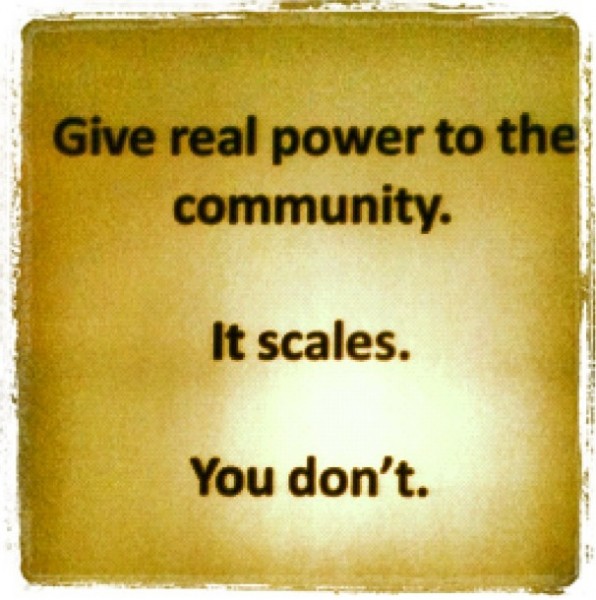Another great article by Nir Eyal. When it comes to linking community development, human behavior and gamification, Eyal is by far the author having the best insights.
In this article Eyal elaborates on the social reward of belonging to a community, the subtle mechanisms to reward status, and – most of all – the fact that the value of status rewards is determined by what it means to other members (as opposed to: what is arbitrarily determined by a machine).
Before I quote the paragraphs of this article that I really want to remember, I want to note that this reminded me of the talk of Jeff Atwood on last year’s Gamification conference in San Francisco. One of his slides showed this quote, which I think is essential to understanding why the value status rewards resides IN the community, not in the machine.
Finally: the paragraphs I selected for my personal archive:
“What makes the points valuable,” Atwood says, “is that they are earned as a proxy of the value created for other users. They embody peer status.” The points system on Stack Overflow is an example of a variable reward of the tribe. Contributors are uncertain of how many points they will accrue by answering a question. The only way to find out is to write the best possible response and hope the community values your contribution.
Points give people real power on the site, but that status is only attained through a meritocratic process that determines who is most valued by the community. The search for rewards of the tribe is driven by status given not from an arbitrary algorithm intended to control the user, but from other users of the site. The distinction is critically important. Reputational status conferred by the community has real value, while badges or points given by a machine have only temporary benefits.
Stack Overflow’s reputation system confers special administrative status to users who add value to the community.
And further in the article:
Utilizing the human need to feel included has another added virtue. Sites that leverage rewards of the tribe benefit from what Albert Bandura called “social learning theory.” Bandura studied the power of modeling and ascribed special powers to our ability to learn from others. In particular, Bandura showed that people who observe someone rewarded for a particular behavior are more likely to alter their own beliefs and subsequent actions.
Notably, Bandura also showed that this technique works particularly well when people observe the behavior of people most like themselves or slightly more experienced. This is exactly the kind of targeted demographic and interest-level segmentation that social media companies like Facebook and industry-specific sites like Stack Overflow selectively display.


